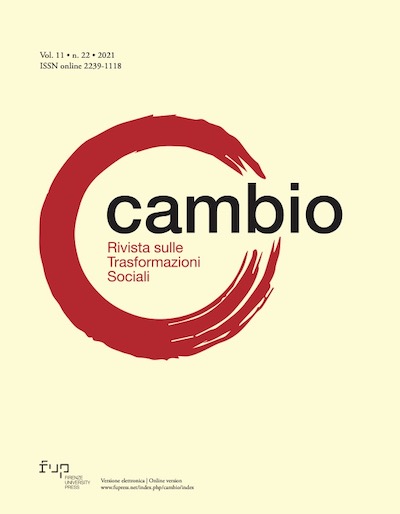Published 2022-08-03
Keywords
- Xylella fastidiosa,
- technoscientific conflicts,
- framing,
- lay expertise,
- science technology society
- social media,
- user-generated content,
- computer-assisted text analysis ...More
How to Cite
Abstract
The article focuses on the online storytelling concerning the Xylella fastidiosa outbreak in the Apulia region (Italy), as represented by a collection of User-generated content retrieved from Facebook, YouTube, and Reddit over a time span of 6 years (>16k comments). We examine the episode as a revelatory case of framing mechanisms that, in many technoscientific conflicts, enable different epistemologies to compete on an equal basis: «mainstream» scientific knowledge, and «alternative» contents (i.e. «non-orthodox» science, local and traditional knowledge). We use Computer-Assisted Text Analysis (CATA) to investigate popular themes and their semantic vocabulary. We find that discourses on Xylella fastidiosa are strongly polarized and structured around two conflicts: «expertise vs. politics» on one hand, and «scientific vs alternative» solutions on the other. Then, we identify three main knowledge production strategies and introduce a typology of «non-mainstream» methods and cures, highlighting the formal traits and argumentation strategies that may have made them more credible than knowledge provided by «official» science. We nevertheless call for more research that may find a recursiveness in such framing mechanisms in the online representation of other technoscientific conflicts.


